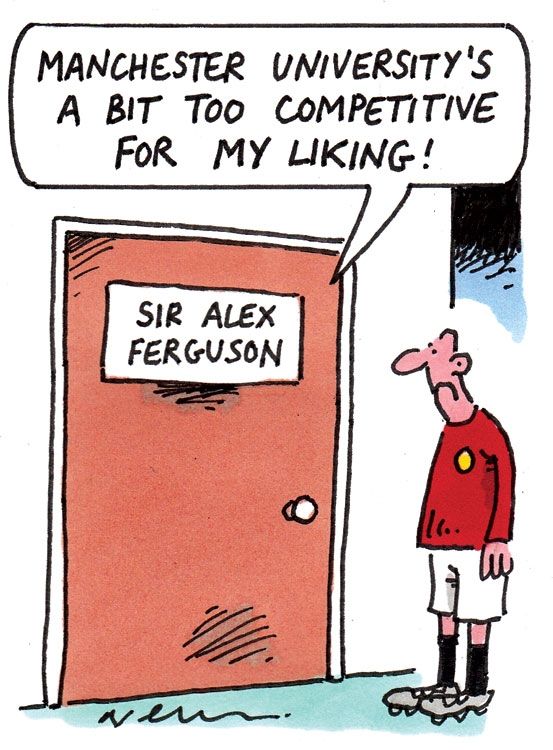
- An Oxford college has vetoed student plans to install a live shark as an exhibit at its May Ball. Alice Prochaska, principal of Somerville College, pulled the plug on the James Bond-inspired installation of a 9ft nurse shark after fears were raised over the “reputation and personal safety of researchers at the university”, The Times reported on 24 April. As the species is usually harmless to human beings, it is assumed that Dr Prochaska was acting on ethical concerns about the use of live animals rather than fears of a Bond villain-esque “accident” amid the dreaming spires.
- University leaders might not have been too happy to hear of shadow health secretary Andy Burnham’s desire to ban “zero hours contracts”, where workers are not guaranteed a certain amount of employment each week. Speaking on BBC One’s Andrew Marr Show on 28 April, the Labour frontbencher backed his party leader’s proposal to give tax breaks to organisations paying staff the “living wage” of £7.45 an hour (£8.55 in London) but said he wanted to go further and prohibit zero-hours deals. Clamping down on such contracts might not be welcomed by university managers, with a sizeable chunk of the 183,500 higher education staff on atypical contracts last year are believed to be employed on these terms.
- If building consensus and harmony are priorities for Sir Christopher Snowden when he takes over as Universities UK president in August, he is off to an idiosyncratic start. In an interview with The Daily Telegraph on 28 April, the University of Surrey vice-chancellor said that some institutions had dropped entry standards to fill places this year. “I can tell you now that I know Manchester took BBC students and some Russell Group universities took ACD students,” he said, before adding humbly: “We didn’t.” Sir Christopher was perhaps unaware that his comments would inevitably be described as coming from “the incoming president of Universities UK”. Senior figures at Manchester, which denied admitting students with C grades, may be hoping to get Sir Christopher alone in a dark alleyway to administer a robust lesson in media training.
- Even before the University of Manchester won its fourth University Challenge title in eight years on 29 April, some papers had begun to ask questions about its alleged Soviet-style hothousing of contestants. While most teams are picked during a boozy night in the student union and left to their own devices, Manchester’s quiz elite are selected by librarian and former UC captain Stephen Pearson, The Daily Telegraph reported on April. Mr Pearson, described as the “Alex Ferguson of University Challenge”, puts the team through a 10-week training regime, including up to five show-length practice sessions a week against former contestants. However, Mr Pearson, whose Manchester team beat University College London in the final by 190 points to 140, denied taking the contest too seriously, saying his primary aim was to put quizzers at ease when they entered the audition for televised stages. He also laughed off suggestions that he might have handed out Fergie’s infamous “hairdryer treatment” to a wayward quiz hopeful, insisting: “I motivate them by the carrot rather than the stick.”
- If a student plugged their MP3 player into a lecture theatre’s sound system and cranked out two minutes of dubstep while their fellow students gyrated, you might expect them to suffer the same fate as those involved in the now-infamous St Hilda’s College Harlem Shake video, which resulted in library invigilator Calypso Nash losing her job and students being fined. However, brief blasts from students’ own music collections, played every 20 minutes during lectures, is one of the techniques being used by Robert Gordon University to reduce sedentary habits while learning. The idea forms part of the university’s “Fit for the Future” initiative, which launched on 30 April with the aim of ensuring a high standard of health and well-being across campus. Other planned activities include calculating how many steps students must climb to reach the equivalent height of Ben Nevis. How students will combine snoozing in 9am lectures with such vigorous activities may be one for the health and safety police, however. For full story see here.